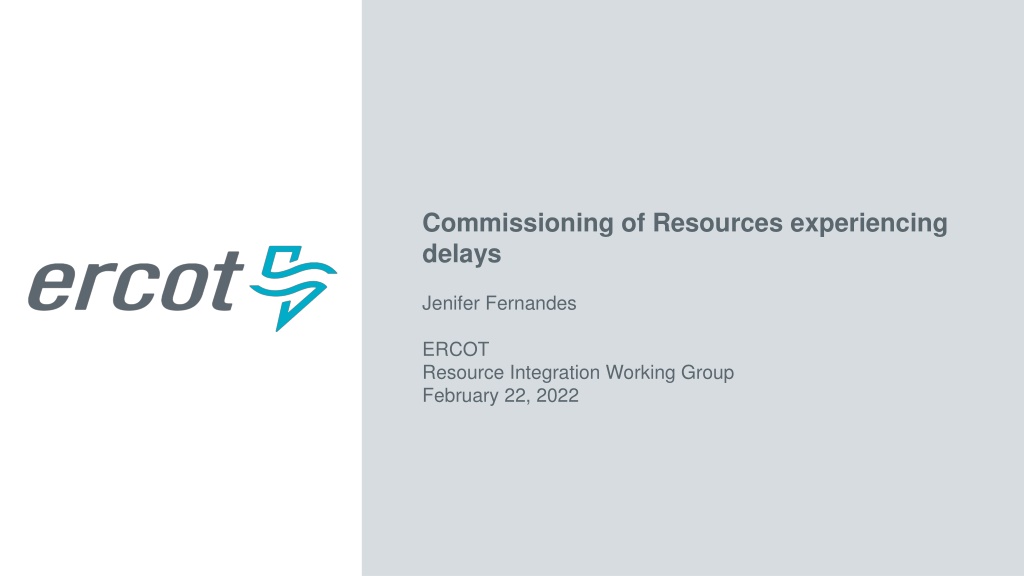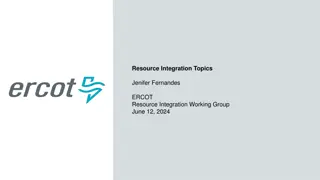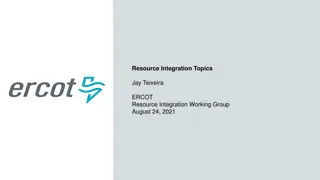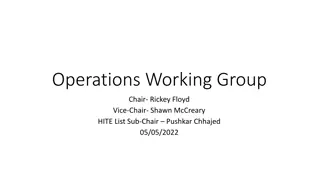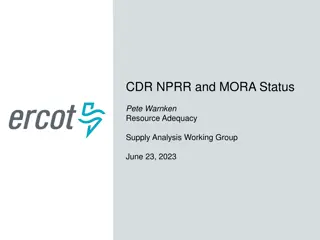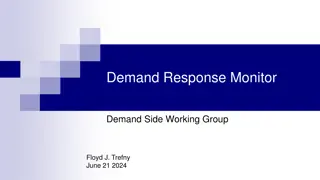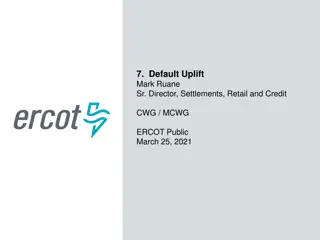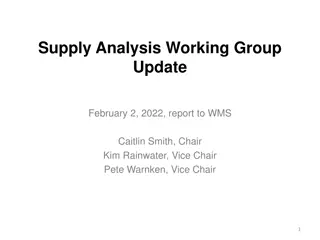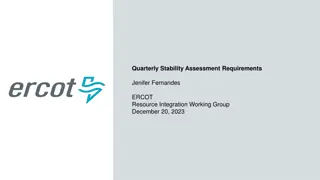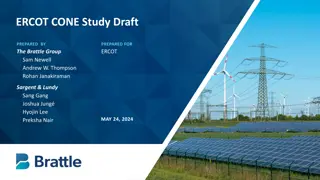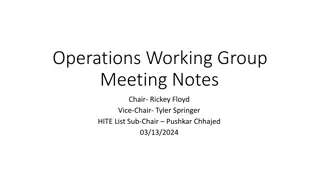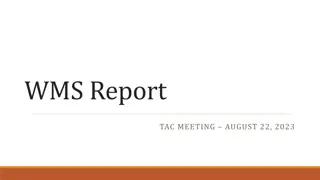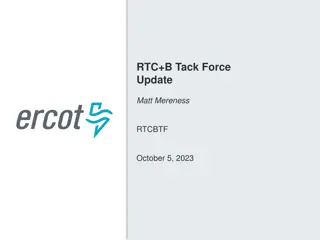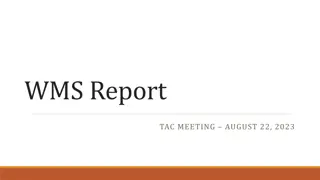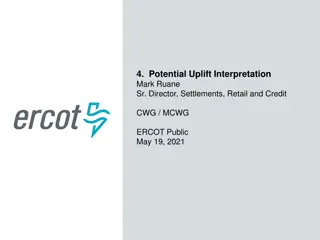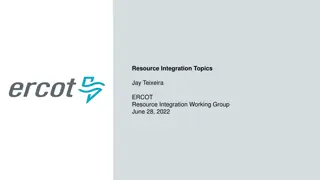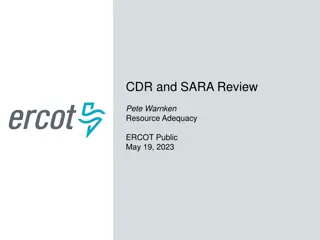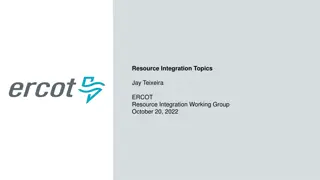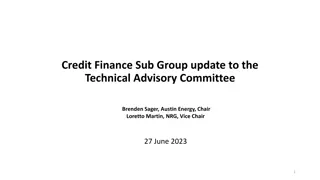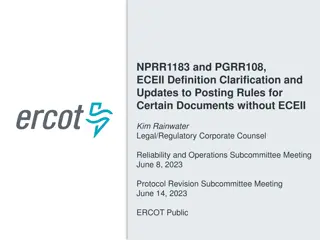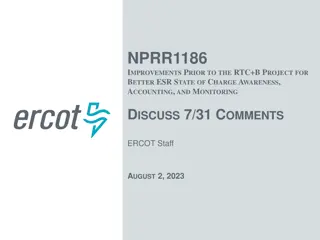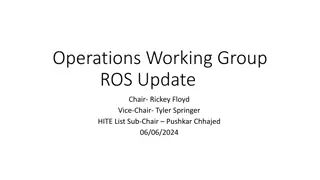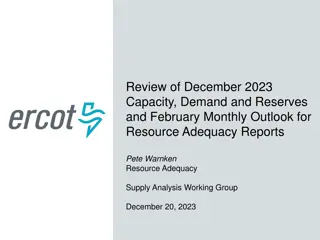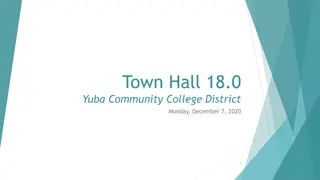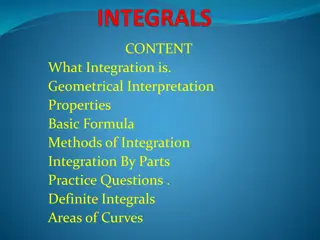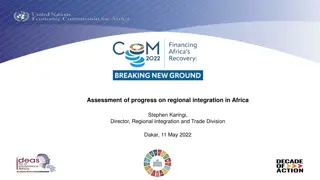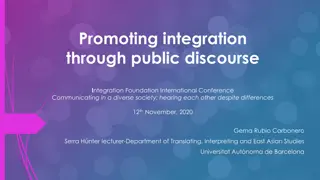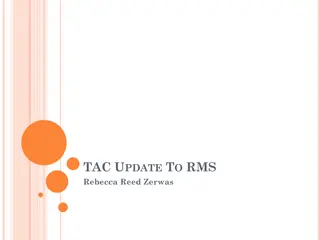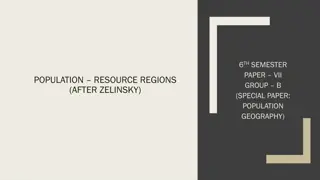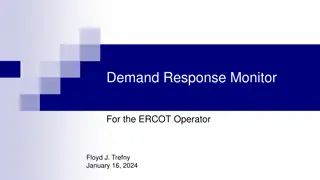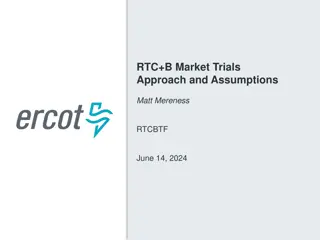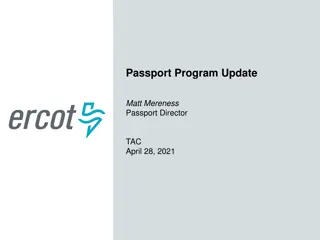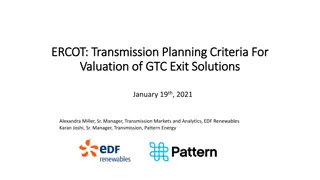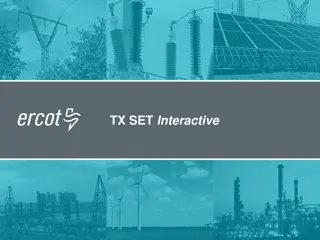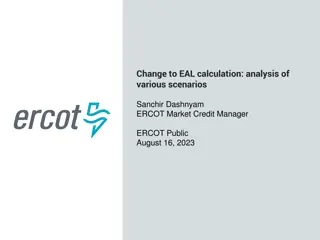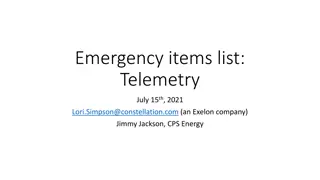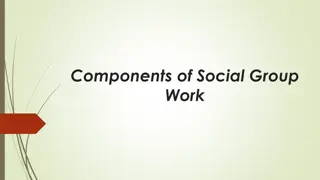ERCOT Resource Integration Work Group Updates
The ERCOT Resource Integration Working Group discusses delays in commissioning resources, including challenges with supply chains and equipment damage. Various scenarios are presented, such as partial commissioning requests and requirements for unit approvals. The document outlines procedures for approvals, testing, and commissioning, emphasizing the need for accurate resource data and model updates.
Download Presentation

Please find below an Image/Link to download the presentation.
The content on the website is provided AS IS for your information and personal use only. It may not be sold, licensed, or shared on other websites without obtaining consent from the author. Download presentation by click this link. If you encounter any issues during the download, it is possible that the publisher has removed the file from their server.
E N D
Presentation Transcript
Commissioning of Resources experiencing delays Jenifer Fernandes ERCOT Resource Integration Working Group February 22, 2022
Overview Requests from Resource Entities (RE) to proceed with Part 3 approval only on the available capacity. Delays due to supply chain challenges. Delays due to equipment damage. ERCOT new or modified Generator Commissioning Procedure Part 1: Request for Energization of RE equipment. Part 2: Request for Initial Synchronization Part 3: Request to Commission a Resource 2
Scenario 1 Resources with multiple Units requesting Part 3 approval on only one of the Units since the other Unit(s) cannot complete Part 3 on the same schedule due to delays. Storage resources require Part 3 approval in order to qualify for Ancillary Services. 3
Scenario 1 1. BESS1 can proceed with Part 3 under the current INR. a) Part 3 Tests will be completed only for BESS1. 2. BESS2 will need to be commissioned under a new INR. a) Generation Interconnection fees will apply per the ERCOT Fee schedule. FIS fees and studies can be waived. b) Part 3 Tests: PFR and Reactive test for BESS2. AVR will include both BESS1 and BESS2 (if on the same PPC). Commissioning: Part 3 will not be approved for BESS1 until the second INR for BESS2 has been submitted in RIOO-IS. 4
Scenario 2 Resources requesting partial commissioning of Unit 1 and Unit 2. This also applies to a single Unit Resource requesting partial commissioning. Since partial commissioning of Resources is not allowed, a new INR needs to be created and Resource model changes are required. 5
Scenario 2 1. Commission only 150MW (75MW/Unit) under the current INR. a. MW capacity for Unit 1 & 2 must be reduced in RIOO-RS (submit CR). b. Update Models (Dynamic, PSCAD and Collector System models) to reflect the reduced capacity. c. Part 3 tests completed only on the available 150MW (75MW/Unit). 2. Submit a new INR for 50MW (25MW/Unit) as repower project. a. Gen Interconnection fees will apply per ERCOT Fee schedules. FIS fee and studies will be waived unless the delay causes an FIS re-study. b. Update INR and MW capacity for Units 1 & 2 in applicable resource data method* for the additional 50MW (25MW/Unit). c. Update Models (Dynamic, PSCAD, and Collector System models) to reflect the increased capacity. d. Part 3 tests completed for the full capacity of 200MW (100MW/Unit). Commissioning: Part 3 will not be approved under the current INR until the Model(s) reflects the reduced capacity. *Applicable resource data method At this time it is believed that an interface similar to RIOO-RS will be available in RIOO-IS for resources to submit resource data during the interconnection process. If this method is not available, then the data will be submitted via the RARF forms. 6
Scenario 3 Resource requesting Part 2 synchronization but cannot complete Part 3 commissioning within 120 days. Possible options include creating a new INR to split the units or handling as a repower project. 7
Scenario 3 1. If the project cannot complete Part 3 commissioning of Unit(s) within 120 days from initial synchronization, then the RE must provide a statement as to the reasons for delays along with an updated Commissioning Plan. The purpose of the statement is to see if part of the project can be commissioned under the current INR and a new INR created for the capacity that cannot be commissioned on the same schedule. 2. If it s determined that part of the INR can be commissioned, then the RE can proceed with commissioning the available capacity under the current INR and submit a new INR for the delayed capacity. a. Gen Interconnection fees will apply per ERCOT Fee schedules. FIS fee and studies will be waived unless the delay causes an FIS to restudy. b. Option 1: Split the Units so there will be a total of 4 Units at the site. Unit 1 and 2 will need to be commissioned under the current INR. Units 3 and 4 will require a new INR. OR c. Option 2: Do a repower INR to keep the 2 units at the site and increase their capacity d. Requires Modeling changes (90 day). e. Part 3 tests will need to be done prior to commissioning of each Unit in the INR regardless of whether Option 1 or 2 is selected. 8
Scenario 3 Option 1: Split the Units so there will be a total of 4 Units at the site. Unit 1 and 2 to be commissioned under the current INR. Units 3 and 4 will require a new INR 9
Summary Requests from Resource Entities (RE) to proceed with Part 3 approval only on the available capacity. Delays due to supply chain challenges or damage to equipment. Resources can proceed with Part 3 on the available capacity under the current INR. Delayed capacity will be commissioned under a new INR. 10
Questions? Thank you!
